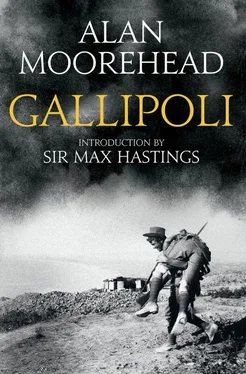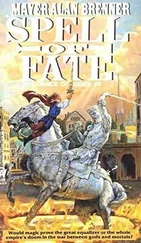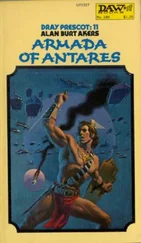Hamilton, going aboard the Queen Elizabeth , found a signal waiting for him. Rupert Brooke was dead. His sunstroke had developed into blood poisoning, and he had died on a French hospital ship at the island of Skyros, just a few hours before he was due to set off for Gallipoli. Freyberg, Browne, Lister and others of his friends had carried him up to an olive grove on the heights of the island, and had buried him there with a rough pile of marble on the grave.
Towards midnight the warships with the assault troops on board were beginning to reach their battle stations. When they were still out of sight of land the ships came to a dead stop, all hands were roused, and a meal of hot coffee and rolls was given to the soldiers. In silence then, with their rifles in their hands and their packs on their backs, the men fell in on numbered squares on deck. There seems to have been no confusion as each platoon went down the ladders hand over hand, and directly the boats were filled they were towed by pinnaces in groups to the stern. The moon had now set, and there remained only a faint starlight in the sky. The battleships, each with four lines of boats behind it, steamed slowly forward again towards the shore. Soon after 4 a.m. the outline of the coast became visible through the early morning mist. An utter stillness enveloped the cliffs; there was no sign of life or movement anywhere.
A STRANGE light plays over the Gallipoli landing on April 25, and no matter how often the story is retold there is still an actuality about it, a feeling of suspense and incompleteness. Although nearly half a century has gone by, nothing yet seems fated about the day’s events, a hundred questions remain unanswered, and in a curious way one feels that the battle might still lie before us in the future; that there is still time to make other plans and bring it to a different ending.
Hardly anyone behaves on this day as you might have expected him to do. One can think of half a dozen moves that the commanders might have made at any given moment, and very often the thing they did do seems the most improbable of all. There is a certain clarity about the actions of Mustafa Kemal on the Turkish side, and of Roger Keyes with the British, but for the others — and perhaps at times for these two as well — the great crises of the day appear to have gone cascading by as though they were some natural phenomenon, having a monstrous life of its own, and for the time being entirely out of control.
For the soldiers in the front line the issues were, of course, brutally simple, but even here the most implausible situations develop; having captured some vital position a kind of inertia seizes both officers and men. Fatigue overwhelms them and they can think of nothing but retreat. Confronted by some quite impossible objective their lives suddenly appear to them to be of no consequence at all; they get up and charge and die. Thus vacuums occur all along the line; while all is peace and quiet in one valley a frightful carnage rages in the next; and this for no apparent reason, unless it be that men are always a little mad in battle and fear and courage combine at last to paralyse the mind.
Even the natural elements — the unexpected currents in the sea, the unmapped countryside, the sudden changes in the weather — have a certain eccentricity at Gallipoli. When for an instant the battle composes itself into a coherent pattern all is upset by some chance shifting of the wind, some stray cloud passing over the moon.
And so no programme goes according to plan, never at any moment through the long day can you predict what will happen next. Often it is perfectly clear to the observer that victory is but a hairsbreadth away — just one more move, just this or that — but the move is never made, and instead, like a spectator at a Shakespearean drama, one is hurried off to some other crisis in another part of the forest.
The movements of both the commanders-in-chief were very strange. Instead of putting himself aboard some fast detached command vessel like the Phaeton , with adequate signalling equipment, Hamilton chose to immure himself in the conning tower of the Queen Elizabeth , and thereby he cut himself off both from his staff and from direct command of what was happening on shore. The Queen Elizabeth was a fighting ship with her own duties to perform quite independently of the commander-in-chief, and although she was able to cruise up and down the coast at the General’s will, she could never get near enough to the beaches for him to understand what was going on; and the firing of her huge guns can scarcely have been conducive to clear thinking. Hamilton, in any case, had resolved before ever the battle began not to interfere unless he was asked — all tactical authority was handed over to his two corps commanders, Hunter-Weston with the British on the Cape Helles front, and Birdwood with the Anzac forces at Gaba Tepe. Since these two officers also remained at sea through the vital hours of the day they too were without accurate information. Signalling arrangements on the shore began to fail as soon as the first contact with the enemy was made, and very soon each separate unit was left to its own devices. Thus no senior commander had any clear picture of the battle, and battalions divided by only a mile or two from the main front might just as well have been fighting on the moon for all the control the commanders exercised upon them.
On several occasions Hamilton might have committed a mobile reserve of troops with the most telling consequences, but it never occurred to him to do this without his subordinates’ approval, those same subordinates who were almost as much in ignorance as he was, and in no position to approve or disapprove of anything. And so all day the commander-in-chief cruises up and down the coast in his huge battleship. He hesitates, he communes with himself, he waits; and it is not until late that night that, suddenly and courageously, he intervenes with a resolute decision.
Liman von Sanders’ actions on April 25 were more understandable but hardly more inspired. He was at his headquarters in the town of Gallipoli when, at 5 a.m., he was woken with the news that the Allies had landed. There were, he says, many pale faces around him as the reports came in. The first of these reports arrived from Besika Bay, south of Kum Kale in Asia: a squadron of enemy warships was approaching the coast there with the apparent intention of putting a force ashore. This was quickly followed by news of the actual landing of the French at Kum Kale, and of heavy fighting on the peninsula, both at Cape Helles and near Gaba Tepe. Still another part of the Allied Fleet had steamed up into the Bay of Saros and had opened fire on the Bulair lines. Which of these five advances was the main attack?
Liman judged that it must be at Bulair. This was the point where he could be most seriously hit, and he felt bound to safeguard it until he knew more clearly which way the battle was going to go. Ordering the Seventh Division to march north from Gallipoli (that is to say away from the main battle) he himself with two adjutants galloped on ahead to the neck of the peninsula. While the early sun was still low on the horizon he drew rein on a high patch of ground near the Tomb of Suleiman the Magnificent and looked down on to Saros Bay. There he saw twenty Allied warships firing broadsides on the shore, with the shells of the Turkish batteries erupting in the sea around them. It was not possible to estimate how many soldiers the enemy had brought to this attack, because a high wall made of the branches of trees had been laid along the decks of the ships, but boats filled with men were already being lowered into the sea. They came on towards the beaches until the Turkish machine-gun fire thickened about them. Then they turned and retired out of range, as though they were waiting for reinforcements before renewing the assault.
Читать дальше












